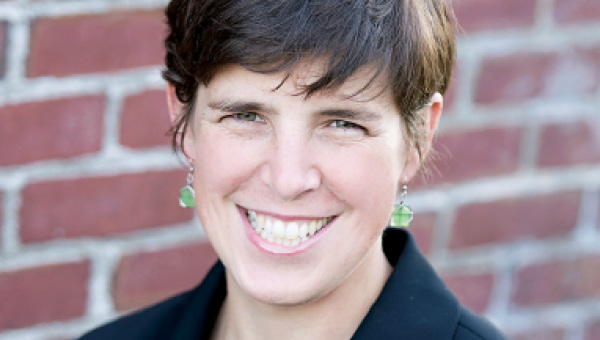Emily Ross: Good Blood

Emily Ross has served as senior supply chain manager at Haemonetics Corporation, Braintree, Mass., since 2008. Haemonetics provides blood management devices and software used by plasma and blood collection centers and hospitals.
Responsibilities: Transportation sourcing for North America and international subsidiaries; sourcing 3PL warehousing services; operational support.
Experience: Marketing coordinator, The Rex Lumber Company; associate manager, department supervisor at Commodities Distribution Center, assistant transportation manager, merchandise analyst, truckload supervisor, logistics manager, senior supply chain analyst, The Home Depot; senior transportation analyst, Staples.
Education: University of Massachusetts, BS, wood science and technology, 1991; Northeastern University, MA, journalism, 1996.
My introduction to logistics came in 1999, when I transferred from the store leadership program at The Home Depot to a job at the company’s Commodities Distribution Center in Norwood, Mass. It was quite an experience.
We were unloading trains in December, and I had to wonder, "How did I get here?" But that job led to a position in a corporate office and, ultimately, a satisfying career.
Haemonetics manufactures products in seven plants in North America, and two in Europe. We also work with several contract manufacturers in Singapore, China, and Japan. We sell our products to customers in more than 80 countries.
Because we’re part of the healthcare industry, managing inventory is challenging in ways I’d never faced when I worked in retail logistics. Those challenges can create extra costs, which I try to keep to a minimum.
For example, in retail you can allocate inventory from any source to any location where it’s needed. But at Haemonetics, unless a country’s regulatory body grants us a license to sell a particular product, we cannot import that product into that country. A license applies not just to the product, but to the specific manufacturing facility.
If our plant in Scotland makes a device for the European market, for example, and demand for that device increases suddenly, we can’t simply ship extra units from a U.S. plant, even though the products are similar. In some cases, we’re not allowed to sell the U.S.-made units to our customers in Europe.
Another challenge we face stems from the company’s growth through acquisitions over the past few years. Integrating these business units is a priority while we maintain continuity to existing Haemonetics customers.
For instance, we recently acquired certain assets of filtration equipment manufacturer Pall Corporation, including new plants in California, Mexico, and Puerto Rico, and a third-party fulfillment site in Kentucky. We’re looking at how to layer those new locations into our existing manufacturing and distribution model. We’re also re-examining our distribution networks in Asia and Europe. We need to figure out how best to serve markets, such as China, India, and Vietnam, where demand for our products is growing.
To redesign a network, we consider where our sales team thinks growth will be, then evaluate our current costs wherever we are distributing. We plug the numbers into models that propose optimal distribution points, then add other considerations and constraints.
Regulatory requirements are important. So are contractual obligations to store safety stock in particular countries. Some governments consider Haemonetics’ products strategic to their nations’ healthcare, so our contracts with certain customers require us to store inventory in their countries.
I value the relationships I have built with carriers—they transcend company boundaries, because most big companies end up using many of the same carriers. At Haemonetics, I’m doing business with people I knew when I was at The Home Depot and Staples. It’s a small group of business professionals, and those are relationships that can last throughout a career.
The Big Questions
How do you recharge your batteries?
Spending time with my family and friends; exercising; and going to the beach to walk my dog, swim, visit the Boston Harbor Islands, and just be near the ocean.
What career achievement makes you especially proud?
While working as a logistics manager for The Home Depot in Atlanta, I helped the Environmental Protection Agency’s SmartWay program get off the ground by recruiting some of The Home Depot’s largest carriers.
Do you have an alter-ego dream job?
Ornithologist (a scientist who studies birds).
What is on your Bucket List?
In March 2012, I fulfilled a long-standing dream by going on safari in a game reserve in South Africa. I’d like to take a trip to St. John’s Bay in Canada and see polar bears; go to the Galapagos; and climb Mt. Kilimanjaro before the snows are gone.
